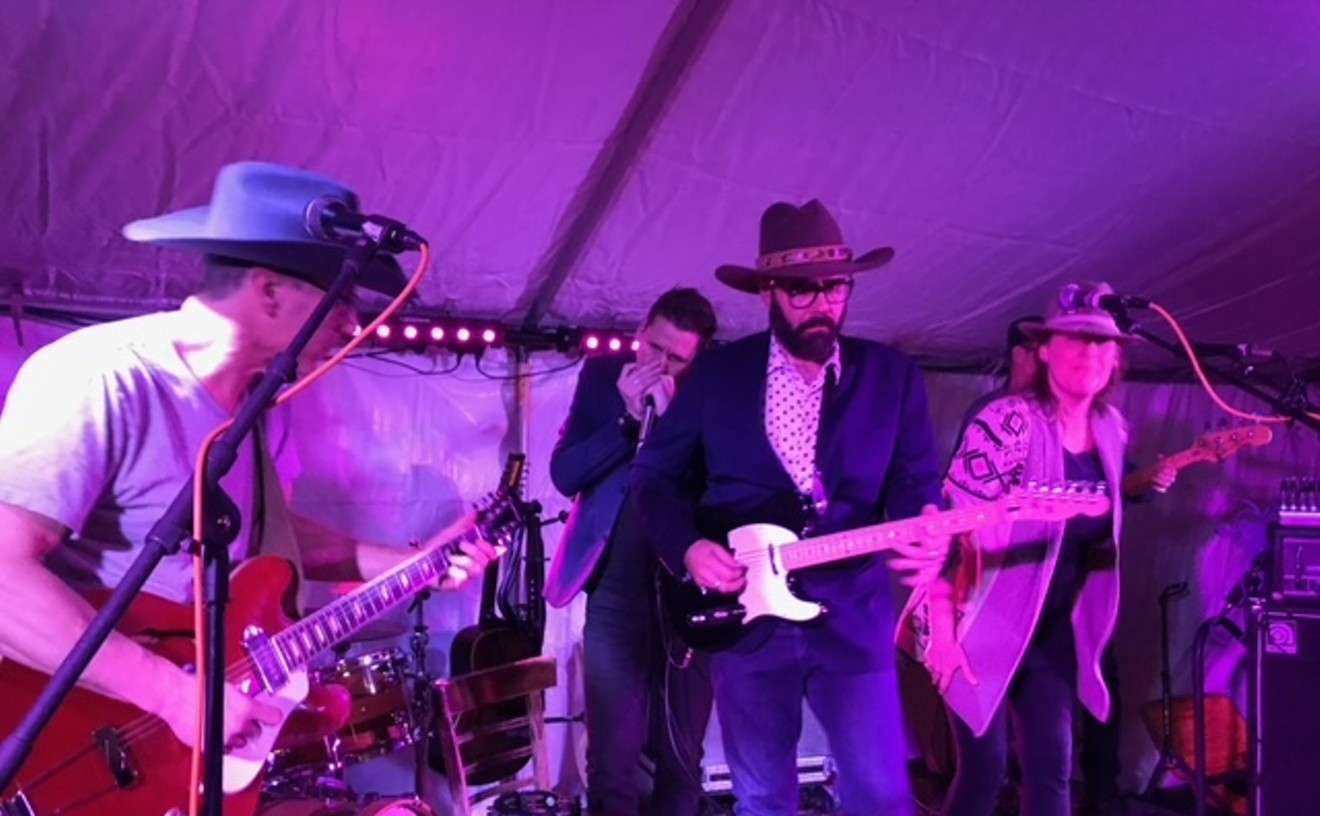Blue Moon Swamp
(Warner Bros.)
James Taylor
Hourglass
(Columbia)
Paul McCartney
Flaming Pie
(Capitol)
With rock and roll well past its fortieth birthday by now, the notion of the style being exclusively the province of the young is pretty much dead. But whether those of us who have a love for the music like it or not, most of the veteran artists still lucky enough to have record contracts are not doing very much with them.
Take Blue Moon Swamp, an album by Fogerty, Creedence Clearwater Revival's former frontman. The offering has been more than ten years in the making (its predecessor, Eye of the Zombie, came out in 1986), and it sounds like it; you can tell that Fogerty fussed over each and every note. However, the twelve tunes on display are so perfectly CCR that you've got to wonder if Fogerty has been listening to anyone other than himself over that span. Fantasy Records' chief, Academy Award winner Saul Zaentz, once sued Fogerty for plagiarizing himself; he claimed--accurately--that "The Old Man Down the Road" mimicked the Creedence smash "Run Through the Jungle," a song whose rights Zaentz owned. Big Saul lost that case, but if he still has a taste for litigation, he should rush to the nearest judge and point out that Swamp's "Southern Streamline" is basically a rewrite of "Bad Moon Rising," "Blueboy" kicks off with a riff that mimeographs the one at the top of "Born on the Bayou," and just about everything else clones one CCR favorite or another. (The exception is "Bring It Down to Jelly Roll," which rips off someone else; the organ solo is lifted directly from "96 Tears" by ? and the Mysterians.) Which is fine for anyone who's never heard Fogerty's best-known group or for fans who would have been offended had their hero done something so brash as to try to stretch. And hell, his "new" stuff still sounds okay: Given Fogerty's traditionalist bent, his approach has dated far less than have the styles favored by many of his Sixties contemporaries. But whereas his early work was the genuine article, his latest is a mere reproduction--a forgery by the very person who painted the original in the first place. And that's too bad, because he is capable of much, much more. He's right to believe that the sound he came up with as a young man remains worthy, but he's wrong to think that expanding it or pushing it or fiddling with it in any way would be tantamount to sacrilege. CCR's music was never cautious; at its best, it choogled along like a freight train with its heat gauge well into the red zone. But on Blue Moon Swamp, Fogerty is so obsessed with playing by the rules that he's forgotten how much fun it was to break them.
Hourglass suffers from much the same syndrome, but because Taylor was never as musically dynamic as Fogerty, the malady doesn't cause as much damage. For as long as anyone can remember, Taylor has specialized in cordial lullabies that reassure rather than challenge, and that's where we are again: From the leadoff cut, "Line 'Em Up," which looks back nostalgically on President Richard Nixon's 1974 resignation, to the unbelievably relaxed version of "Walking My Baby Back Home" that officially closes the disc, the music makes you feel like an old dog being gently patted on the head by an elderly master on his way to his recliner to fall asleep. Everything is tuneful and tasteful and thoroughly professional (guests include Yo-Yo Ma, Mark O'Connor and Stevie Wonder), but the only number on which Taylor exhibits the slightest spark is a Western spoof, complete with whip cracks, that doesn't even appear on the CD's liner (it's the by-now-anticipated "hidden track"). And when the throwaways are more fun than the keepers, you know you're in trouble.
As for Flaming Pie, the first recording of new material by McCartney in several years, it's hardly different from the platters Paulie devotees have been picking up since Tug of War, from 1982. ELO's Jeff Lynne, who started out as a Beatles imitator, gives McCartney a boost on "The World Tonight," which sounds like a casual version of a Rockpile single from about 1978 (I guess that makes it modern), while "The Song We Were Singing" recycles the "Silly Love Songs" motif yet again, and "Young Boy" ambles along on the power of guest Steve Miller's strumming and the sort of vapid hook that The Cute One falls back on when he doesn't really feel like trying too hard. Not that McCartney knocks himself out elsewhere: "Flaming Pie," which is supposed to be a rollicking rocker, tastes as mild as Velveeta, "Souvenir" nicks "Maybe I'm Amazed" in an unexpectedly blatant way, "Really Love You" includes a guitar solo that apes "Eight Miles High" (how novel), and "Used to Be Bad" (featuring more contributions from Miller) has a title that's all too accurate.
Flaming Pie will probably sound fine to Fab Four fanatics--especially ones who view "Blackbird" as the greatest song of all time--but that doesn't mean they'll listen to it much; more than likely, they'll buy it out of loyalty, spin it a couple of times and then forget about it. But that doesn't mean that its middling quality is anything to get worked up about. McCartney, Fogerty and Taylor are important historical figures, and that legacy will easily survive these long-players, which are less creative statements they just had to get out of their systems than they are busy work. These guys made Blue Moon Swamp, Hourglass and Flaming Pie for the same reason that your grandfather refinishes antique furniture in his garage--because they needed something to do. There's nothing wrong with that, of course, but that doesn't mean you have to encourage such behavior by giving them any of your hard-earned money. After all, they're rich.
--Michael Roberts











